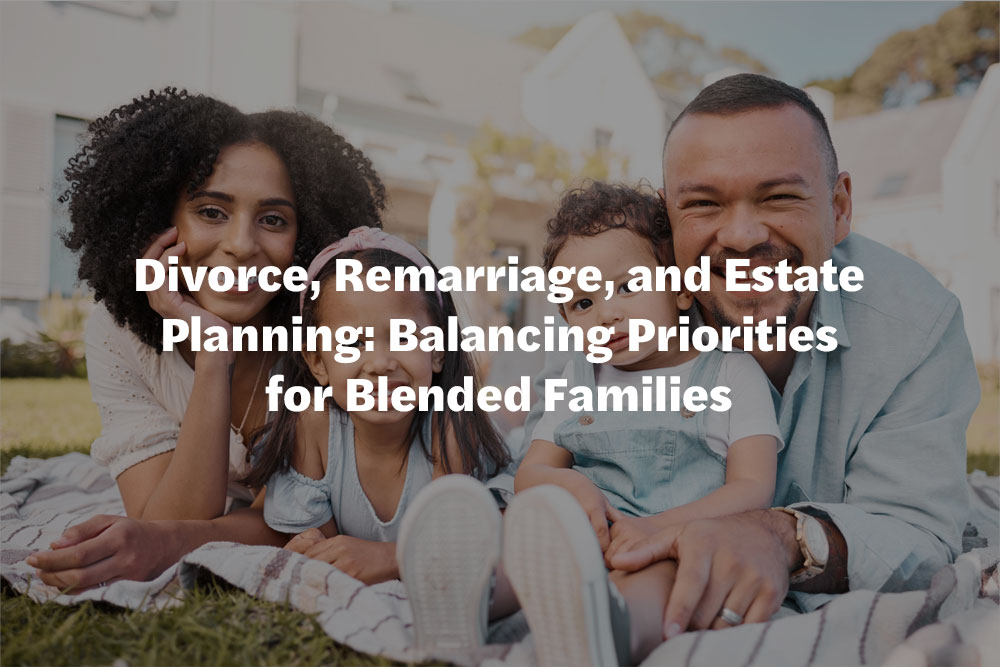Blended families, created when one or both partners in a marriage have children from previous relationships, are increasingly common. While these families bring much joy and new beginnings, they also introduce unique challenges in estate planning. After a divorce and subsequent remarriage, ensuring that your estate plan reflects your current familial structure and wishes is crucial for protecting your legacy and providing for all loved ones.
Understanding the Dynamics of Blended Families
Blended families often face complex emotional and financial situations that can affect estate planning. Balancing the needs and expectations of new spouses, stepchildren, and children from previous relationships requires careful consideration and strategic planning. Without a clear estate plan, state laws may not distribute your assets in a way that aligns with your wishes, potentially leading to familial conflicts and legal challenges.
Key Considerations for Estate Planning in Blended Families
- Updating Wills and Trusts: It’s essential to review and revise your will and any trusts after a divorce and remarriage. These documents should reflect your current family dynamics and specify how you want your assets distributed among your spouse, biological children, and stepchildren.
- Guardianship Decisions: If you have minor children from a previous marriage, deciding who will take care of them if you cannot is crucial. This decision should be made in consultation with your current spouse and your children’s other biological parent if possible.
- Beneficiary Designations: Similar to the issues faced in divorces, remarriage requires updating beneficiary designations on life insurance policies, retirement accounts, and other financial instruments to reflect your current relationship status.
- Use of Trusts: Trusts can be an excellent tool for blended families to manage how assets are distributed. You can set up trusts to provide for your current spouse during their lifetime while preserving the principal for your children from a previous relationship.
- Prenuptial Agreements: These agreements can clarify what will happen to your and your spouse’s assets upon death or further relationship changes. They are particularly important in remarriages to delineate personal versus marital property.
Implementing Your Plan
- Open Communication: Discuss your estate planning goals and concerns openly with your spouse and, when appropriate, with other family members. This communication ensures that everyone understands your intentions and can help prevent disputes after your passing.
- Work with Estate Planning Experts: Navigating the complexities of estate planning for blended families often requires professional guidance. Attorneys at Allenby Law specialize in creating tailored estate plans that respect your wishes and protect your family’s future.
- Review Regularly: As your family situation evolves, so should your estate plan. Regular reviews—at least every three to five years or after any significant family change—are essential to keep your estate plan up-to-date.
For members of blended families, estate planning offers a critical opportunity to ensure that your assets are distributed as you intend and that all family members are provided for in accordance with your wishes. At Allenby Law, we understand the nuances of estate planning for blended families. We are committed to providing smart, simplified solutions that address the complexities of your unique family situation. Contact us today to create an estate plan that offers peace of mind and security for your blended family.



